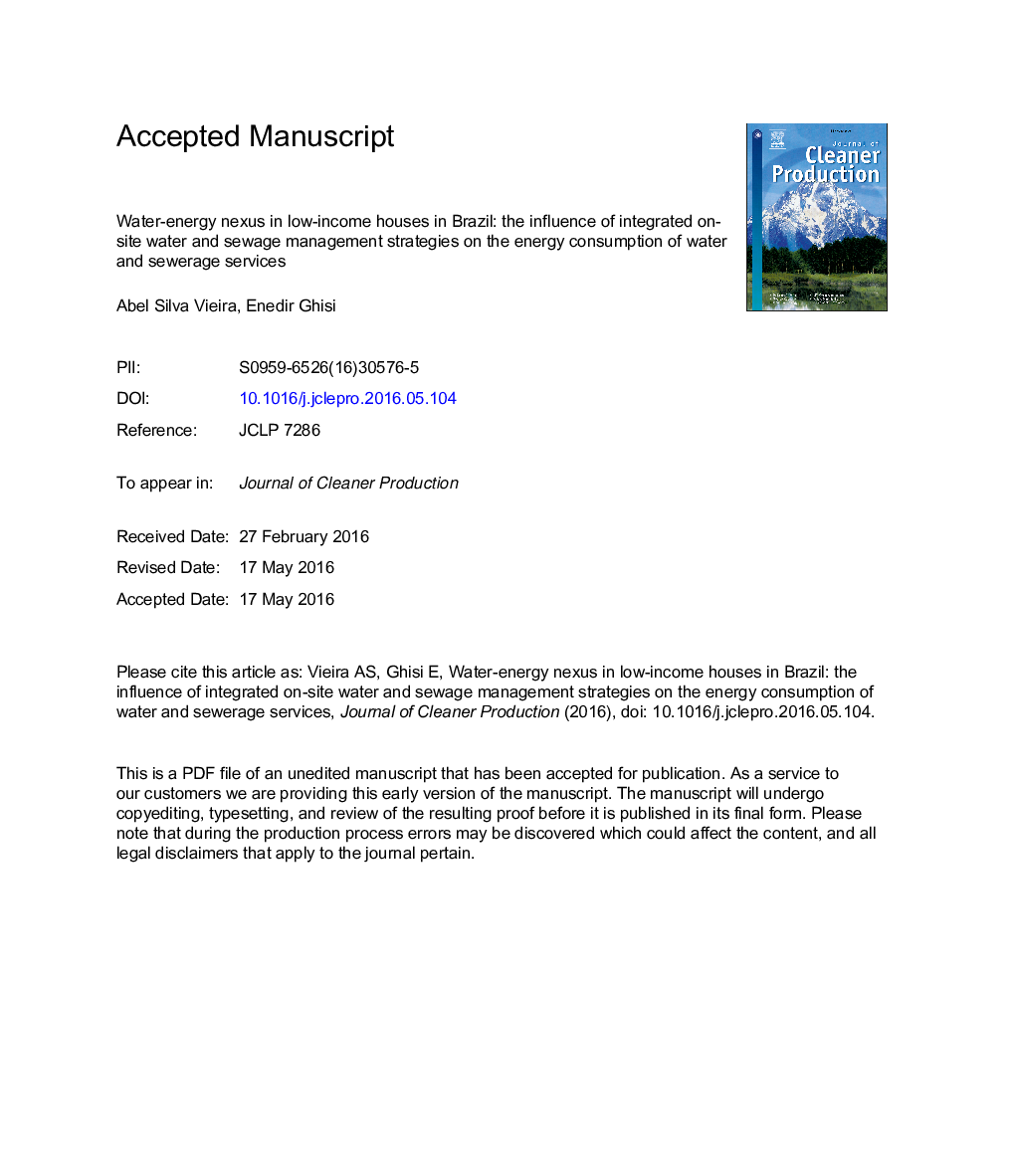| کد مقاله | کد نشریه | سال انتشار | مقاله انگلیسی | نسخه تمام متن |
|---|---|---|---|---|
| 8101416 | 1522116 | 2016 | 45 صفحه PDF | دانلود رایگان |
عنوان انگلیسی مقاله ISI
Water-energy nexus in low-income houses in Brazil: the influence of integrated on-site water and sewage management strategies on the energy consumption of water and sewerage services
ترجمه فارسی عنوان
ارتباطات آب و انرژی در خانه های کم درآمد در برزیل: تأثیر یکپارچگی راهبرد مدیریت آب و فاضلاب در محل مصرف انرژی آب و خدمات فاضلاب
دانلود مقاله + سفارش ترجمه
دانلود مقاله ISI انگلیسی
رایگان برای ایرانیان
کلمات کلیدی
آب و انرژی نکسوس، وسایل موثر آب، برداشت آب باران، احیاء آب خاکستری، خانواده های کم درآمد،
موضوعات مرتبط
مهندسی و علوم پایه
مهندسی انرژی
انرژی های تجدید پذیر، توسعه پایدار و محیط زیست
چکیده انگلیسی
The water-energy nexus has been increasingly studied in order to elucidate the complex interdependence between water and energy resources, and, as a result, enhance management practices to conserve both resources alike. In this context, integrated water management plans have direct implications on the energy embodied into water and sewerage services. The objective of this study is to assess the potential for energy savings in water and sewerage services by means of on-site integrated water and sewage management strategies in low-income households in Florianópolis, Brazil. The studied water efficient measures include: (i) installation of water efficient fixtures (dual flush toilets and water efficient taps); (ii) reclamation of grey water from shower, washing basin, and laundry for toilet flushing; and (iii) rainwater use for laundry and toilet flushing. From the combination of these measures, the water and energy saving potential of seven integrated water and sewage management strategies were studied. Moreover, the water consumption pattern at ten low-income households with conventional and water efficient taps were empirically determined using water smart meters; whereas, the rainwater supply capacity was estimated by using the computer programme Netuno 4.0, and the grey water supply and sewage reduction capacities were determined using model equations. Rainwater harvesting alone appeared as the least favourable strategy for energy savings as the energy consumption would increase 4% compared to a centralised system; while the combination of water efficient fixtures and grey water reclamation gave rise to the greatest energy saving potential (48%). The findings of this study indicate that, from an energy management point of view, the sustainability of the water sector is primarily associated with the reduction of effluents to centralised systems, rather than the use of alternative water sources.
ناشر
Database: Elsevier - ScienceDirect (ساینس دایرکت)
Journal: Journal of Cleaner Production - Volume 133, 1 October 2016, Pages 145-162
Journal: Journal of Cleaner Production - Volume 133, 1 October 2016, Pages 145-162
نویسندگان
Abel Silva Vieira, Enedir Ghisi,
